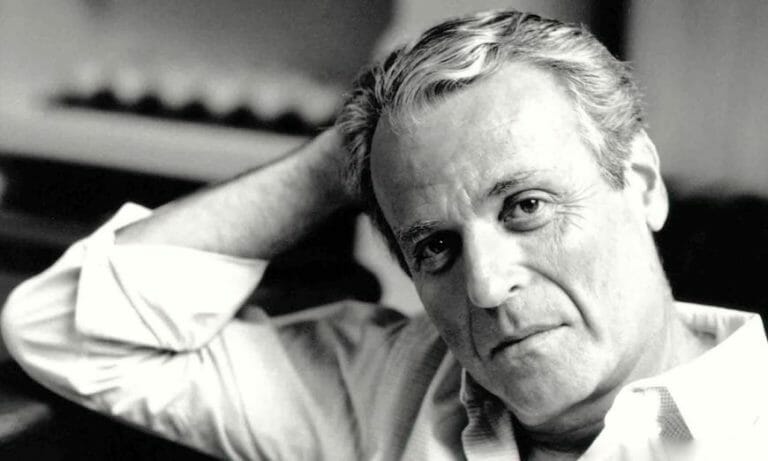By Terris Ko · May 6, 2015

Some screenwriters are just good writers, period. From the start, they were bestowed the ultimate talent of being able to craft near impeccable screenplays.
Here are five that have left behind a writing legacy beyond screenwriting.
Want more from Terris? Follow him HERE.
5. Tom Stoppard
Prolific as a playwright, Tom Stoppard’s best known stage work is Rosencrantz and Guildenstern Are Dead. Stoppard went on to establish himself as a noted screenwriter as well, garnering an Oscar nomination for co-writing Brazil (1985) with Terry Gilliam, and then an Oscar Award for Shakespeare in Love (1998), shared with Marc Norman.
He’s also notable not only for the screenplays he’s credited with working on, including The Russia House (1990) and Empire of the Sun (1987), but also his uncredited work on projects like Sleepy Hollow (1999) and Indiana Jones and the Last Crusade (1989) (where his work on the script was recognized by director Steven Spielberg).
4. David Mamet
Another playwright/screenwriter, David Mamet has nominations for both Tony Awards and Oscars (Wag the Dog (1997) and The Verdict (1982)) under his belt. Like other playwright/screenwriters, Mamet also himself adapted a few of his plays into screenplays, including Glengarry Glenn Ross (1992), American Buffalo (1994) and Oleanna (1996).
Mamet also has gone behind the camera to write-direct House of Games (1987), Redbelt (2008), and The Spanish Prisoner (1997).
3. Neil Simon
Renowned as both a comedy playwright and a screenwriter (he has received more Oscar and Tony nominations combined than any other writer), Neil Simon has created indelible characters and relationships both on the stage and screen.
His screenplays include adaptations of his own plays, such as Barefoot in the Park (1967), The Odd Couple (1968), Plaza Suite (1971), The Sunshine Boys (1975), the autobiographical “Eugene trilogy” (Brighton Beach Memoirs (1986), Biloxi Blues (1988), Broadway Bound (1992)), and Lost in Yonkers (1993).
2. Ruth Prawer Jhabvala
Ruth Prawer Jhabvala began her writing career with a handful of novels in the 1950s and ‘60s. Director-producer team James Ivory and Ismail Merchant hired her to write the screenplay for their film adaptation of her third novel, The Household (1960), which grew into a storied decades-long collaboration including films like A Room With a View (1986), Howard’s End (1992), Remains of the Day (1993), Mr. and Mrs. Bridge (1990), Jefferson in Paris (1995), and The Golden Bowl (2000). (Jhabvala won Oscars for A Room With a View and Howard’s End, and received an Oscar nomination for Remains of the Day.) Of the 23 screenplays Jhabvala wrote, Madame Sousatzka (1988) was the only one she wrote not produced by Merchant Ivory.
1. William Goldman
William Goldman is a study in both longevity and diversity. Although now primarily distinguished for his screenwriting, Goldman actually began his writing career as a novelist (his first novel, The Temple of Gold, was written in three weeks and picked up by the first publisher Goldman contacted). Never one to be pigeon-holed, Goldman’s prolific resume ranges from political thrillers (All the President’s Men (1969)) to family-friendly fantasy comedies (The Princess Bride (1987), also adapted from his novel) to thrillers (Marathon Man (1976), adapted from his novel; Misery (1990), adapted from the Stephen King novel; and The Stepford Wives (1975), adapted from the Ira Levin novel) to biographical dramas (Chaplin (1992) and Butch Cassidy and the Sundance Kid (1969), also a western crime drama).